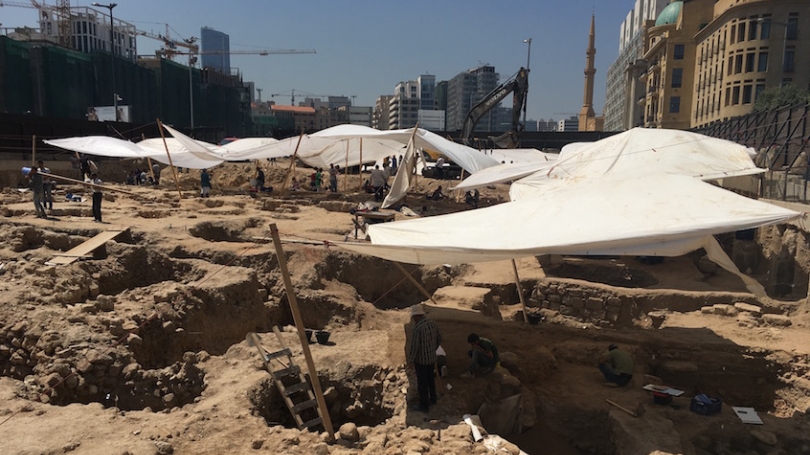Amira Solh was Head Urban Planner of Beirut Central District (2007-2016).
My work over the last 15 years has been on urban planning in Beirut, mainly in the city center as part of Solidere, the Lebanese Company for the Development and Reconstruction of the Beirut Central District. As the Urban Planning Department Manager at Solidere, I was responsible for the overseeing all development projects, the planning of Martyrs’ Square, the Green Line that divided East and West Beirut during the 15 year Civil War, the planning of public spaces, new developments like the Beirut Souks and the Zaha Hadid building currently under construction, the transportation planning, and the cultural heritage projects such as the Beirut City Museum by Renzo Piano Building Workshop, the Beirut Heritage Trail and supervised all archaeological excavations. The Private Public Partnership model of Solidere raises many challenging questions about postwar reconstruction beyond commercial real estate development, which is what my work has grappled with. I would love to frame my talk by discussing the following questions: in postwar cities, how do you rebuild, replan and redesign when there is no reconciliation? What is the impact of no reconciliation on how we conceive and build our cities? Between amnesia and memorialization lies the status quo of stagnation and inertia, so how do you build a museum of the city history in that context? What is the micro that you encounter as a planner/architect and what does it actually mean on the macro level? At some point, we have to abandon the conventional model of postwar reconstruction and forge a new model that can revolutionize the way we “rebuild.” In this talk, I examine the specificities of Beirut but look at the lessons learned for the region and even the world in its current condition of conflict.
